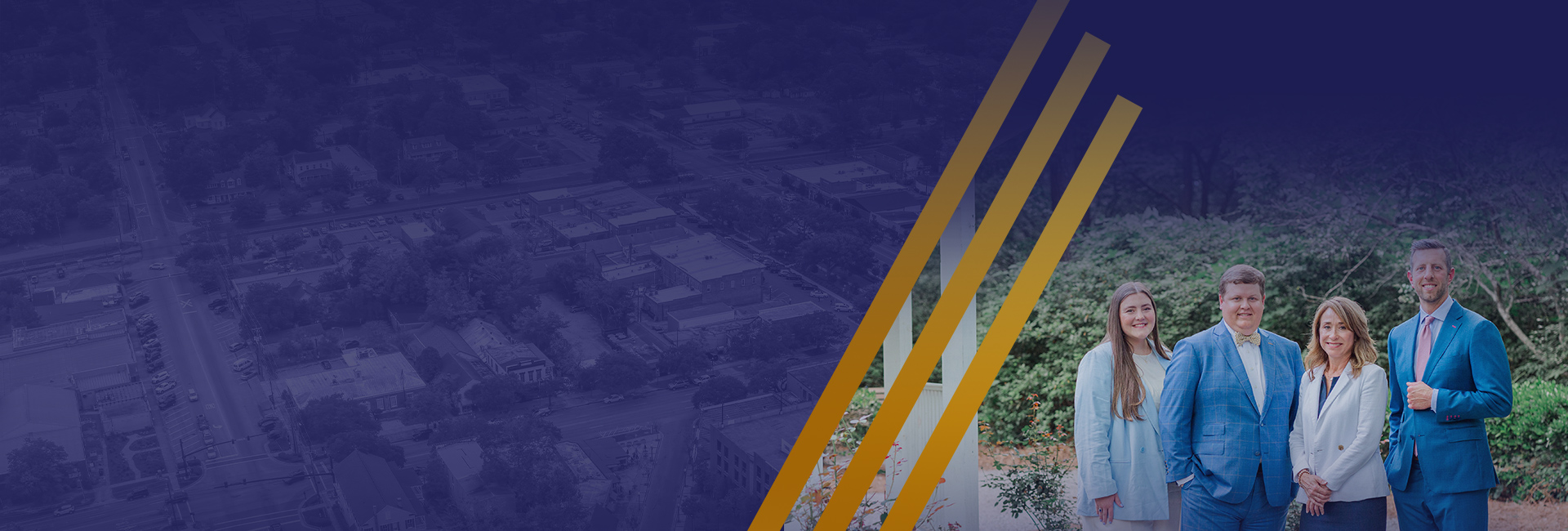
When Facing Tough Times… You Need Someone You Can Trust
Summerville Juvenile Criminal Defense Lawyer
Facing Juvenile Criminal Charges in SC?
If your child has been charged with a crime in SC, you are probably worried, nervous, and scared for your child. What will happen next? Are they going to put my child in jail?
Juvenile criminal defense is different from any other type of criminal case in SC. Juvenile cases are heard in a different courtroom – the Family Court. Your child does not have the same constitutional rights that adults have when charged with a crime. The potential defenses and punishments are different for a juvenile than they are for adults.
How do you navigate the juvenile criminal justice system, fight unfair accusations against your child, and find the best outcome that helps your child learn from their mistakes without getting caught up in South Carolina’s criminal justice system?
That’s Where the Juvenile Defense Lawyers at Templeton Mims & Ward Can Help.
While juvenile criminal charges can be serious and have long-lasting consequences, there is hope. Depending on your child’s circumstances, there may be options to get their charges dismissed, keep your child out of jail, and minimize the damage to your child’s future.
Let’s Take a Look at Potential Options.
Solicitor/Prosecutor Drops the Case
As with adult criminal charges, the solicitor/prosecutor could decide to dismiss the case for a number of reasons, including insufficient evidence to prosecute the case, improperly handled evidence, or evidence that we uncover that proves your child’s innocence.
Pretrial Diversion
There are pretrial diversion/ juvenile arbitration programs available in many situations that will allow your child’s case to be dismissed once they have completed certain requirements like community service, writing a letter of apology, counseling, or other requirements tailored to your child’s situation.
Plea Bargain With the Solicitor
“Plea bargaining” is different in the juvenile court. In adult court, you may be able to plead to a lesser offense that can be expunged later or that keeps you out of prison. In juvenile court, however, the overriding principle should be the best interests of the child. If an “adjudication of delinquency” is not in the child’s best interests, there may be other options available. On the other hand, if an adjudication of delinquency is called for, the available remedies are not necessarily “punitive,” and, in some cases, unique remedies can be crafted that are in the child’s best interest.
Trial
Although trials are not as common in juvenile court as they are in adult court, your child is entitled to a trial (in front of a family court judge, not a jury), and there are times when a trial is necessary and appropriate in the juvenile court.
-
 Assault And Battery Personal Injury Lawsuit In South CarolinaRead More
Assault And Battery Personal Injury Lawsuit In South CarolinaRead More -
 South Carolina Criminal Defense Lawyer, When Do You Need One?Read More
South Carolina Criminal Defense Lawyer, When Do You Need One?Read More -
 What Is The Legal Limit Of Alcohol In South Carolina?Read More
What Is The Legal Limit Of Alcohol In South Carolina?Read More -
 Conditional Discharge SC: Everything You Need To KnowRead More
Conditional Discharge SC: Everything You Need To KnowRead More -
 Forgery Laws In SCRead More
Forgery Laws In SCRead More -
 Restraining Orders In SC: Everything You Need To KnowRead More
Restraining Orders In SC: Everything You Need To KnowRead More -
 I Received A Court Subpoena In SC… Now What?Read More
I Received A Court Subpoena In SC… Now What?Read More -
 What Are White Collar Crimes In SC? Charges & PenaltiesRead More
What Are White Collar Crimes In SC? Charges & PenaltiesRead More
Why Fight Your Juvenile Charges?
Your child’s experience with the juvenile criminal justice system can have a long-lasting impact on the rest of their life.
Why?
- They need to know that someone cares and someone is willing to stand up for them and fight for them.
- While some juvenile cases result in prison time, probation, and other “punitive” measures, there are sometimes other alternatives that can help your child to learn and grow from the experience.
- Although juvenile adjudications of delinquency should not affect your child once they become an adult, it may appear on background checks and can affect future interactions with the police or the courts.
- Consider the difference it could make on your child’s future development and self-view if your child is 1) required to do community service and write an essay about what they did and why it was wrong, or 2) locked in a juvenile detention facility with other children who have been adjudicated delinquent.
Although we cannot guarantee results in any case, we understand the importance of juvenile criminal justice proceedings and the impact that they can have on a child or teenager at a critical time in their development.
We Can Help You With:
- Juvenile detention and probable cause hearings – getting your child home,
- Investigating your child’s case and preparing a defense for negotiations and a possible trial,
- Adjudication hearings, sentencing hearings, and preparing you for home or in-custody evaluations of your child, and
- Finding the best possible outcome that is in your child’s best interests.
Frequently Asked Questions
Do background checks show juvenile records?
Although juvenile records are confidential, they may appear on a background check if they have not been sealed or expunged.
Can juveniles be charged with felonies?
Juveniles can be accused of committing misdemeanor or felony offenses, but the distinction is not relevant. If they are “convicted,” it is technically not a criminal conviction. They are “adjudicated delinquent” and any consequences that are imposed should be in the best interest of the child.
When do juveniles get charged as adults?
A juvenile who is 17 years old or older will automatically be charged in General Sessions Court (adult court) if they are charged with a Class A, B, C, or D felony or if their charges carry a potential penalty of 15 years or more (burglary first degree, armed robbery, or murder, for example).
Although they are initially charged in General Sessions Court, we may be able to get your child’s case “remanded” to the family court.
Why do I need an attorney to represent my child?
Your child is required to have an attorney if they are charged with a crime. It is in your child’s best interest to retain a juvenile criminal defense attorney with extensive experience in the family courts, but, if you do not retain an attorney, the court will appoint a public defender to represent them.
How long can they keep my child in jail?
When a juvenile is charged with a crime, they should be immediately released to their parent or guardian’s custody unless the police think that they are a danger to themselves or to the community.
When they are not released, they must be held at a detention center for juveniles for no more than 48 hours before a detention and probable cause hearing. If the court does not release your child at the first hearing, they must hold a second detention hearing within ten days.
Client Reviews
-
He took the time to listen and got the job done. I highly recommend him.
Lucy B. -
The staff was very friendly and helpful.
Anonymous -
I picked the right law firm for advice. They communicated the steps that would take place.
Anonymous -
The experience was fast and painless – and I got the result I wanted.
Reese E. -
Professional and proactive service.
Dawn M.
-
One-Stop Shop for Any Legal Needs
-
Former Prosecutors & Defense Attorneys
-
Extensive Trial Experience
-
Over 40 Years of Combined Experience
Whether you have questions or you’re ready to get started, our legal team is ready to help. Complete our form below or call us at (843) 891-6100.









